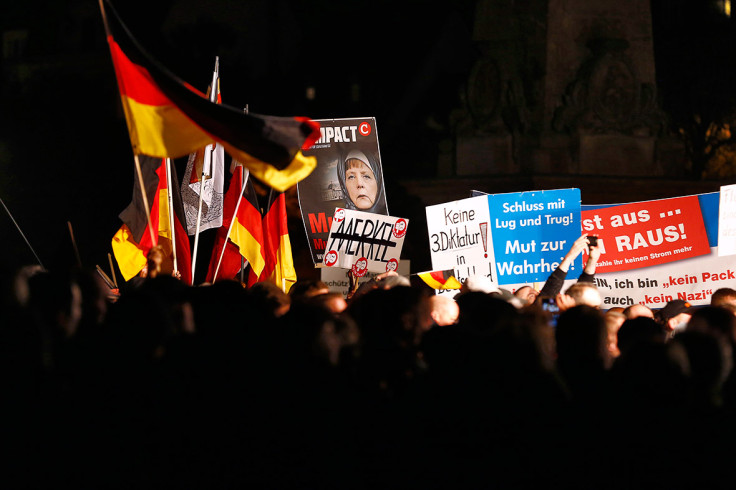Germany: Muslim leader compares anti-Islam policies of far-right AfD to Nazi persecution of Jews

A German Muslim leader compared the anti-Islam policies of the Alternative fur Germany party to the persecution of the Jews by the Nazis.
In recent months AfD support has surged, with the party capitalising on growing opposition to Chancellor Angela Merkel's refugee policy. In the run-up to the party's annual congress in Stuttgart, the AfD has hardened its anti-Islam stance, with the party's deputy leader Beatrix von Storch claiming in a newspaper interview on Sunday that Islam is "not compatible with the constitution".
Its Brandenburg leader Alexander Gauland said Islam was "not a religion like Catholic or Protestant Christianity, but rather always associated intellectually with the takeover of a state."
The party announced that if elected it would ban the burqa, a face-covering female Islamic veil, the minaret tower on mosques and the muezzin, the cleric who leads the daily call to prayer.
The head of Germany's Central Council of Muslims, Aiman Mazyek, said it was not Islam that was incompatible with the German constitution, but the AfD, and that the party's "anti-democracy" agenda needed to be exposed.
"Creating awareness means pointing out that for the first time since Hitler's Germany, there is a party which is discrediting and existentially threatening a religious community," he told public broadcaster NDR.
"I think the AfD is playing with people's fears," Burhan Kesici, the head of the Islamic Council, told public broadcaster Deutschlandfunk. "We had a wave of refugees last year, we have a lot of unemployment, we have other problems. I think now they are trying to score using Islam to attract new voters," he added.
Islam was "obviously compatible with the German constitution" said Kesici, and said that youths mainly become radicalised after drifting away from mainstream Islam. He said that Islam advocated equality between men and women and that women were not compelled to wear a veil.
"It is left to a woman if she wants to wear the burqa and that does not have anything to do with social pressure," Kesici told the broadcaster. He said that though homosexuality was not acceptable in Islam, it was important for people to live peacefully together regardless of their political views or sexual inclinations.
In regional elections in March the AfD saw its support increase, with the party coming ahead of the centre-left Social Democrats and gaining 24 per cent of the vote in Saxony-Anhalt, and polling strongly in two other states. In the wake of the refugee crisis the previously Eurosceptic AfD has repositioned itself, campaigning on a strongly anti-Islam platform.
In December, party leader Frauke Petry drew widespread criticism when she called for police to shoot immigrants entering the country illegally.
© Copyright IBTimes 2025. All rights reserved.






















